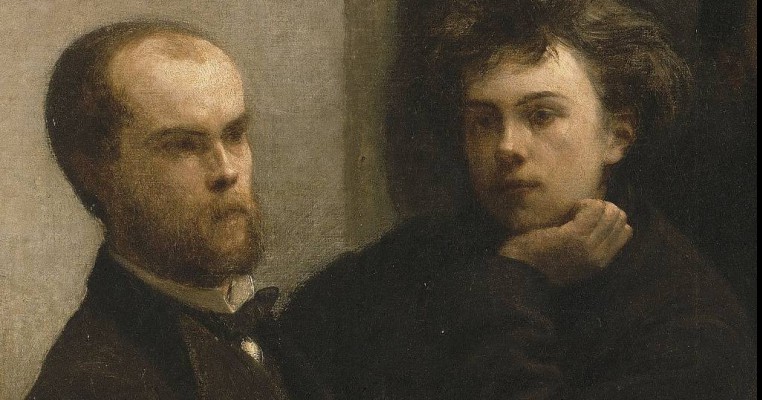Few have embodied the “haunted poet” bit better than French poet Jean Nicolas Arthur Rimbaud (1854 – 1891), an early pioneer of the Symbolism art movement, who helped lay the groundwork for Surrealism. He pulled that off by writing his major works in a five-year stretch between the ages of 16 and 21. After finishing one of his major works, a collection known as Illuminations, Rimbaud quit writing altogether, and dove headfirst into a lifelong pursuit of sex, drink, drugs, and violence.
Done with poetry, a restless Rimbaud wandered through Europe, before sailing to the Dutch East Indies (modern Indonesia), and spending the rest of his life in a variety of pursuits all around the world. They included a stint as a Dutch colonial soldier in Sumatra; a cashier at a German circus; a stone quarry construction foreman; a coffee merchant in Yemen; and a mercenary and gun runner in Africa. He then capped off his restless life in fittingly romantic style, by dying young.

Early Life of a Precocious Poet
Arthur Rimbaud was born in Charleville, a small town in the Ardennes region of northeastern France, to a French army infantry captain and a local farmer’s daughter. The father was a genial and easygoing type when he was around, but he usually was not. An absentee parent, Rimbaud’s father spent the bulk of his career abroad, and eventually abandoned the family altogether, leaving it to Arthur’s mother, a strong-willed woman who pinned her hopes on the future poet. Madam Rimbaud had a reason for high expectations from young Arthur, a child prodigy and model student who astonished his schoolteachers with his mastery of many subjects, especially literature.
Arthur’s mother was the opposite of his laid-back father: a fervently religious, bigoted, stingy, and humorless woman, and a tough taskmistress who rode her children hard. Among her disciplinary tactics was forcing them to learn hundreds of lines of Latin verse by heart as punishment for misbehavior, and depriving them of food if they came up short on homework and scholarly tasks. To keep them from dawdling on the way to school, and to ensure that they did not mix with the wrong kids, Arthur’s mother would not allow her kids out of her sight. To their mortification, she insisted on walking them to school until they were sixteen.
Such excessive supervision embarrassed the kids, and predictably, it backfired. The children, especially Arthur, grew to resent their mother’s overbearing oversight of all that they did, and the future poet eventually came to hate school and formal education in general. The one subject he kept a passion for was poetry, and early in his teens, he exhibited signs that he would become a poet of note. At age 15, he penned one of his greatest poems, Ophelia, whose verses included:
For more than a thousand years sad Ophelia
Has passed, a white phantom, down the long black river.
For more than a thousand years her sweet madness
Has murmured its ballad to the evening breeze.
The wind kisses her breasts and unfolds in a wreath
Her great veils rising and falling with the waters;
The shivering willows weep on her shoulder,
The rushes lean over her wide, dreaming brow.
The ruffled water-lilies are sighing around her;
At times she rouses, in a slumbering alder,
Some nest from which escapes a small rustle of wings;
– A mysterious anthem falls from the golden stars.

By age 16, Rimbaud found his distinctive voice in poetry that reflected the major strains that would govern the rest of his life: revolt against a repressive home and hometown environment, and a passionate yearning for adventure and freedom. Once religious, Rimbaud’s verses grew increasingly antireligious, cynical, and critical of all forms of sentimentality. However, he was still trapped in Charleville, stuck under his mother’s thumb and the limitations of small-town traditions.

